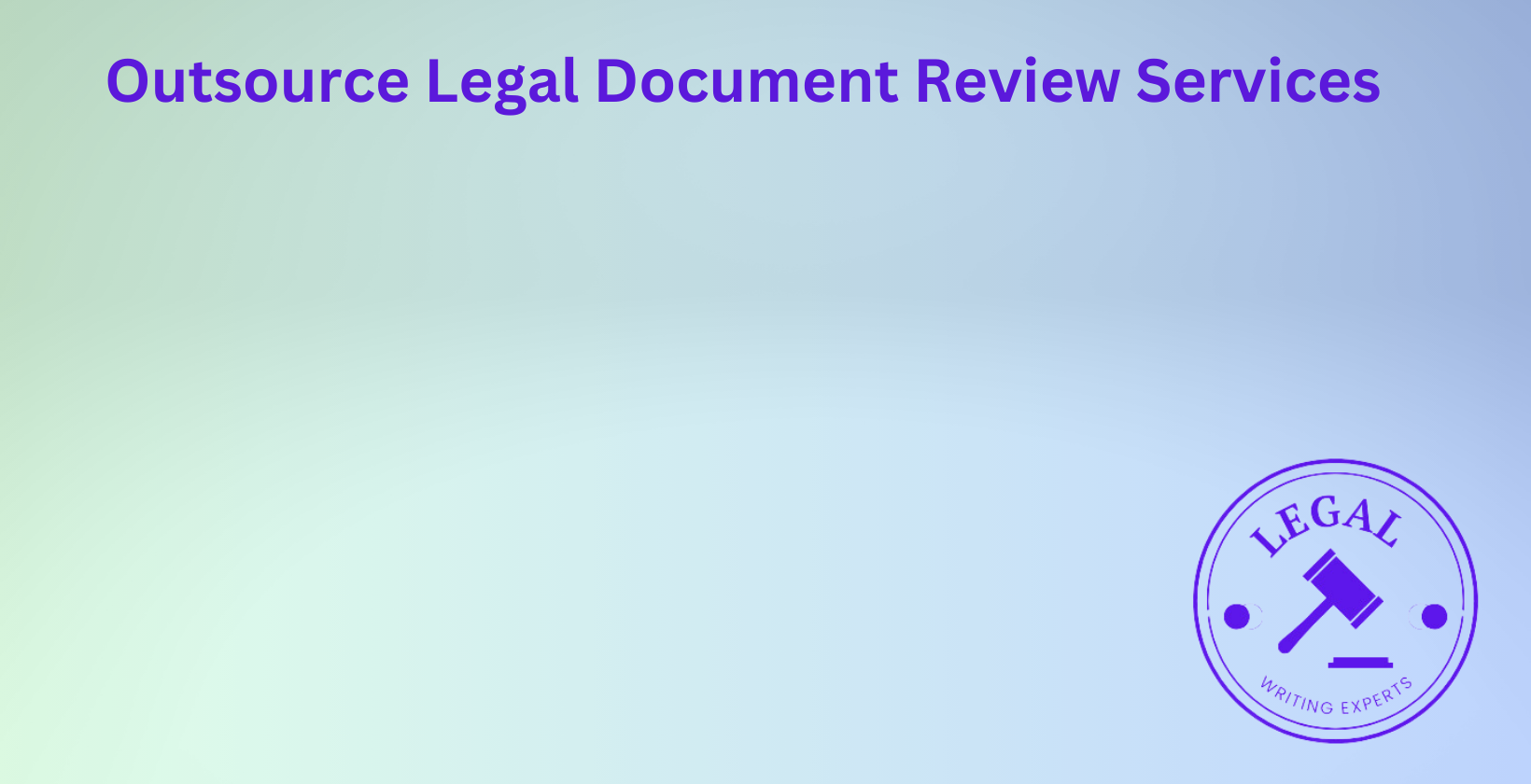Outsource Legal Document Review Services
Written by
Jessica E
January 02, 2025 · 8 min read

Outsourcing legal document review services has become an essential strategy for businesses and legal firms aiming to manage costs and improve operational efficiency. This article explores the operation, benefits, and challenges of outsourcing these services, offering insights into how they can integrate seamlessly with in-house teams and ensure compliance. It delves into technologies, data security measures, and cost considerations while highlighting the industries that benefit the most. Furthermore, it addresses ethical considerations and the importance of training to maintain high-quality outcomes.
What Are Outsourced Legal Document Review Services?
Outsourced legal document review services are third-party solutions for analyzing and managing large volumes of legal documents. These services focus on identifying relevant information, ensuring compliance, and highlighting key details for litigation, due diligence, or regulatory purposes. For example, during eDiscovery in litigation, outsourced teams assist in sifting through extensive data to identify pertinent facts.
How Do Outsourced Legal Document Review Services Operate?
Outsourced legal document review services operate by deploying specialized professionals and tools to examine legal documents for specific purposes. The process includes assigning a team, using technology like artificial intelligence (AI), and adhering to strict quality standards to deliver actionable insights. For instance, a service provider might use AI-driven tools to classify documents by relevance or privilege status.
What Are the Benefits of Outsourcing Legal Document Review?
The benefits of outsourcing legal document review include cost savings, access to expertise, and increased efficiency. Businesses reduce overhead costs by relying on external specialists rather than expanding in-house teams. For example, outsourcing firms provide multilingual reviewers to handle international cases efficiently.
How to Choose the Right Provider for Legal Document Review Services?
Choosing the right provider involves evaluating expertise, technology, and data security measures. Businesses should assess the provider’s track record, client testimonials, and ability to handle specific legal needs. For instance, a company specializing in antitrust litigation may seek a provider experienced in handling complex regulatory reviews.
What Technologies Are Utilized in Legal Document Review Outsourcing?
Technologies utilized include AI, machine learning, predictive coding, and secure cloud-based platforms. These technologies streamline the review process by categorizing documents, detecting duplicates, and ensuring accuracy. For example, predictive coding uses algorithms to prioritize documents based on relevance.
How Does Outsourcing Legal Document Review Ensure Data Security?
Outsourcing ensures data security by implementing robust encryption, secure access protocols, and compliance with international standards like GDPR or HIPAA. Providers often conduct regular audits and training to safeguard sensitive information. For example, encrypted storage ensures that unauthorized parties cannot access confidential data.
What Are the Cost Implications of Outsourcing Legal Document Review?
The cost implications of outsourcing legal document review involve upfront savings compared to in-house operations and variable pricing models like per-document or per-hour rates. Outsourcing reduces expenses related to hiring, training, and technology investments. For instance, a firm reviewing thousands of documents may find the per-document rate more economical.
How to Integrate Outsourced Legal Document Review with In-House Teams?
Integration with in-house teams requires clear communication, defined roles, and shared workflows. Regular meetings and updates help ensure alignment. For example, outsourced teams may provide daily reports on review progress, allowing in-house counsel to focus on strategic tasks.
What Industries Benefit Most from Outsourcing Legal Document Review?
Industries benefiting most include legal, healthcare, finance, and technology. These sectors handle large volumes of sensitive and regulated information requiring meticulous review. For example, pharmaceutical companies outsource reviews for regulatory submissions.
How Does Outsourcing Legal Document Review Enhance Compliance?
Outsourcing enhances compliance by leveraging specialists familiar with regulations and deploying technology to identify risks. This ensures adherence to legal standards. For instance, financial institutions outsource reviews to comply with anti-money laundering regulations.
What Are the Challenges in Outsourcing Legal Document Review and How to Overcome Them?
Challenges include quality control, cultural differences, and data privacy concerns. Overcoming these issues involves regular training, clear guidelines, and robust contracts. For instance, a provider may use detailed review protocols to maintain consistency.
How to Measure the Success of Outsourced Legal Document Review Services?
Success is measured by accuracy, timeliness, cost savings, and client satisfaction. Metrics like error rates and turnaround times offer valuable insights. For example, achieving a 99% accuracy rate in a document review project indicates success.
What Are the Legal and Ethical Considerations in Outsourcing Document Review?
Legal and ethical considerations include maintaining confidentiality, avoiding conflicts of interest, and ensuring compliance with local laws. Providers often sign non-disclosure agreements and follow strict ethical codes. For instance, ensuring privilege is preserved in a legal case avoids ethical breaches.
How to Transition from In-House to Outsourced Legal Document Review Services?
Transitioning involves phased implementation, comprehensive training, and collaboration. Businesses begin with pilot projects to test the provider’s capabilities before full-scale outsourcing. For example, transitioning a single department ensures a smoother shift.
What Training Do Outsourced Legal Document Review Teams Receive?
Outsourced legal document review teams receive training in legal standards, technology, and industry-specific requirements. Providers invest in continuous education to adapt to changing regulations. For instance, reviewers are trained in AI tools to enhance efficiency and accuracy.
Meet the Author
Distinguished linguist at Legal Writing Experts
Jessica is an expert legal writer with a remarkable blend of legal knowledge and linguistic precision. She earned her Juris Doctor degree from Duke University, where she attended on a prestigious Law Faculty Merit Scholarship. At Duke, Jessica demonstrated her exceptional abilities by serving as an editor of the Duke Law Review.
After graduating, Jessica further refined her skills during a two-year appellate clerkship at a distinguished law firm in North Carolina. Throughout law school, she enhanced her research and writing expertise as a research assistant and writer for various legal firms. Jessica’s deep understanding of legal language and meticulous attention to detail make her an invaluable asset to our legal writing services.


